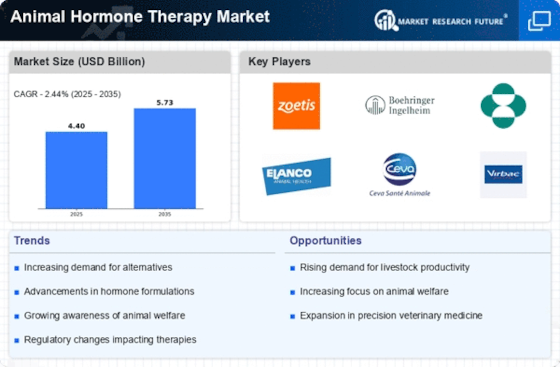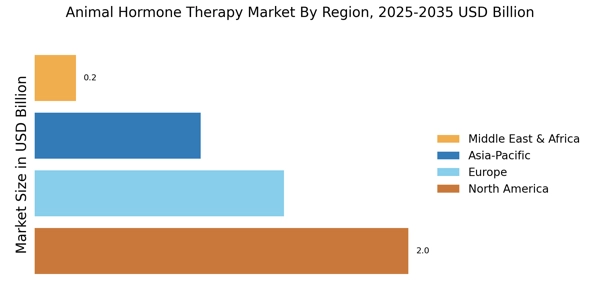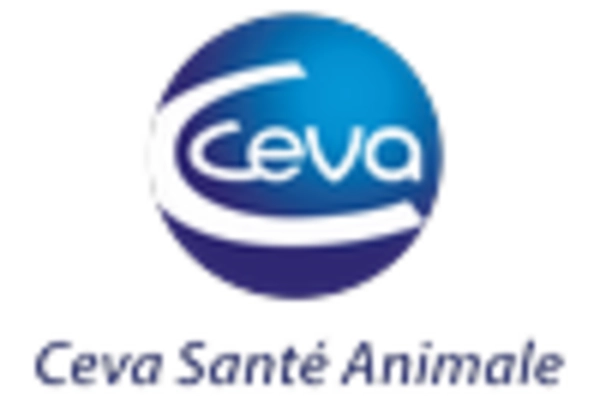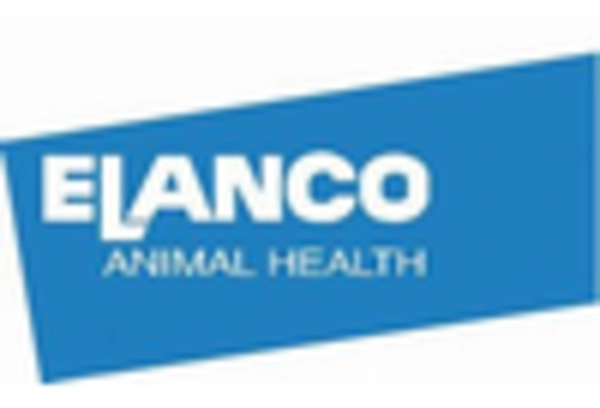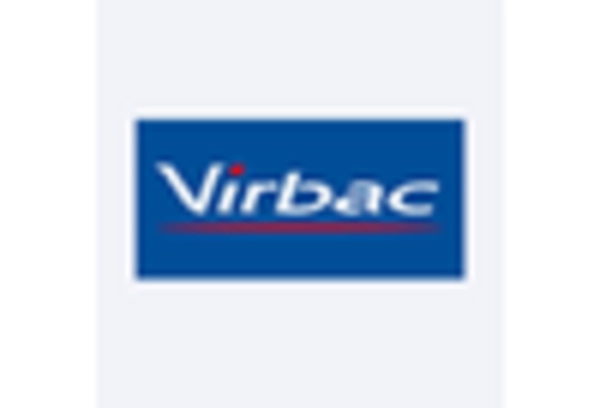Rising Demand for Animal Products
The increasing global demand for animal products, such as meat, dairy, and eggs, is a primary driver of the Animal Hormone Therapy Market. As populations grow and dietary preferences shift towards protein-rich foods, livestock producers are compelled to enhance productivity and efficiency. Hormone therapies are utilized to optimize growth rates and reproductive performance in animals, thereby meeting the escalating consumer demand. According to industry reports, the livestock sector is projected to expand significantly, with a notable increase in hormone usage to ensure sustainable production levels. This trend underscores the critical role of hormone therapies in maintaining supply chains and meeting market needs.
Regulatory Support for Hormone Use
Regulatory frameworks that support the use of hormone therapies in livestock are shaping the Animal Hormone Therapy Market. Governments and regulatory bodies are recognizing the importance of these therapies in enhancing food security and agricultural productivity. As regulations evolve to accommodate safe and effective hormone use, producers are more likely to adopt these treatments. This regulatory support not only facilitates market entry for new products but also encourages research into innovative hormone therapies. The alignment of regulatory policies with industry needs is likely to foster growth and stability within the market.
Advancements in Veterinary Medicine
Innovations in veterinary medicine are propelling the Animal Hormone Therapy Market forward. The development of new hormone therapies and delivery systems enhances treatment efficacy and safety for animals. For instance, the introduction of long-acting hormone formulations allows for less frequent administration, improving compliance among livestock producers. Furthermore, advancements in diagnostic tools enable veterinarians to tailor hormone treatments to individual animal needs, optimizing outcomes. The veterinary sector's commitment to research and development is likely to yield novel therapies that address specific health issues, thereby expanding the market and improving animal welfare.
Emerging Markets and Economic Growth
Emerging markets are witnessing economic growth, which is positively impacting the Animal Hormone Therapy Market. As economies develop, there is an increase in disposable income, leading to higher consumption of animal products. This economic shift drives demand for efficient livestock production methods, including hormone therapies. Countries with expanding agricultural sectors are likely to adopt these treatments to enhance productivity and meet domestic and international market demands. The potential for growth in these regions presents opportunities for stakeholders in the hormone therapy market, as they seek to capitalize on the rising demand for animal-derived products.
Increased Awareness of Animal Health
There is a growing awareness regarding animal health and welfare, which is influencing the Animal Hormone Therapy Market. Pet owners and livestock producers are increasingly prioritizing the health of their animals, leading to a rise in the adoption of hormone therapies for preventive care and treatment of various conditions. This trend is supported by educational initiatives and outreach programs that emphasize the importance of proper animal care. As consumers become more informed about the benefits of hormone therapies, the market is expected to witness a surge in demand, particularly for products that promote overall health and productivity.


